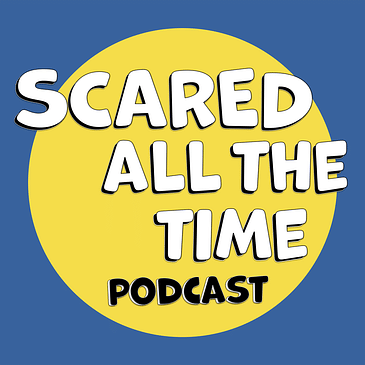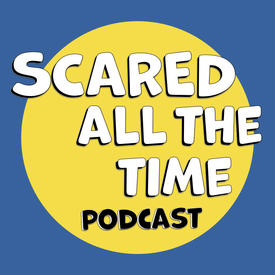Join hosts Ed Voccola (Rick and Morty, Bless The Harts) and Chris Cullari (Blumhouse, The Aviary) for a wild trip through the world of what scares them.
This week, the boys explore a fear of earthquakes that looms over their daily lives in Southern California. But not just any earthquake. The Big One.
What will it be like when it hits? Will the boys survive? Only one way to find out!
Don't love every word we say? Ok, weirdo. Here's some "chapters" to find what you DO love:
00:00:00 - Intro
00:02:13 - Housekeeping
00:09:04 - We’re Talking The Big One
00:22:54 - Lots Angeles Aside
00:25:55 - The Big One Continued
00:27:02:- What to do in an Earthquake
00:31:02 - Tsunami Talk
00:38:33 - What is the Big One?
00:51:18 - What will it do?
01:25:37 - After The Shaking Stops
01:38:00 - The Fear Tier
NOTE: Ads out of our control may affect chapter timing.
Visit this episode’s show notes for links and references.
And the show notes for every episode can now be found on our website.
Want even more out of SATT? You can SUPPORT THE SHOW and grab yourself ad-free episodes, a welcome button, and more by joining SATT PREMIUM.
This week, the boys explore a fear of earthquakes that looms over their daily lives in Southern California. But not just any earthquake. The Big One.
What will it be like when it hits? Will the boys survive? Only one way to find out!
Don't love every word we say? Ok, weirdo. Here's some "chapters" to find what you DO love:
00:00:00 - Intro
00:02:13 - Housekeeping
00:09:04 - We’re Talking The Big One
00:22:54 - Lots Angeles Aside
00:25:55 - The Big One Continued
00:27:02:- What to do in an Earthquake
00:31:02 - Tsunami Talk
00:38:33 - What is the Big One?
00:51:18 - What will it do?
01:25:37 - After The Shaking Stops
01:38:00 - The Fear Tier
NOTE: Ads out of our control may affect chapter timing.
Visit this episode’s show notes for links and references.
And the show notes for every episode can now be found on our website.
Want even more out of SATT? You can SUPPORT THE SHOW and grab yourself ad-free episodes, a welcome button, and more by joining SATT PREMIUM.



